Eleven ambulatory surgery center administrators discuss how they are addressing the challenges their centers are currently facing.
Q: What is the biggest challenge your surgery center is currently facing and how are you addressing that issue?
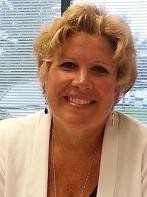 Monica M. Ziegler, MSN, CASC, Administrator, Physicians Surgical Center (Lebanon, Pa.) & Center for Specialized Surgery (Bethlehem, Pa.).
Monica M. Ziegler, MSN, CASC, Administrator, Physicians Surgical Center (Lebanon, Pa.) & Center for Specialized Surgery (Bethlehem, Pa.).
Our greatest challenge is always maintaining or increasing our volume. With all the pressures of the environment, i.e. physicians pressured to become employees, mergers, decreasing payments from insurers, etc. – we are challenged to keep our existing physicians motivated to bring cases and satisfied. We are always searching for new physicians to visit or join our team. Most recently we are in a little competition with the other ASCs under the umbrella of our management partner – the staff receive gift cards for names of potential new providers. If the MDs come for a visit the prize value increases, if they do a case – it rises again. It's a new game for us – but a little boost to the staff.
We continue to visit physicians in our surrounding areas. We continue to reach out to physicians in our community that we've approached in the past unsuccessfully – but things change, you never know when someone is ready to say "yes, I’d like to visit." We look at new opportunities as well. Concepts we've not considered in the past. Every day requires new creative thinking.
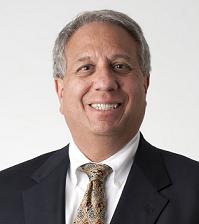 Bruce Kupper, CEO of MEDARVA Healthcare, Stony Point Surgery Center (Richmond, Va.).
Bruce Kupper, CEO of MEDARVA Healthcare, Stony Point Surgery Center (Richmond, Va.).
The biggest challenge facing us is the continued acquisition of physicians by the bigger health systems. Independent surgeons are concerned that the systems will control the referral network, and try to eliminate independent surgeons from the network. Meanwhile, the systems are also actively acquiring surgeons and other proceduralists, leaving fewer independent surgeons. To combat this, we continue to provide exceptional value to the surgeons and their patients, so that we continue to be the place that the surgeons (even those that may be employed by the larger health systems) want to operate at. Value is being defined as high quality and high service for a reasonable price. We also work with our surgeons to jointly promote their expertise and our high quality and low infection rates. As the patient/consumer becomes better educated, high quality, low infection rates and exceptional service will win over those who employs the surgeon.
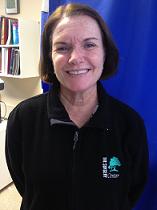 Chris Behm, Administrator of Surgery Center of San BuenaVentura (Ventura, Calif.).
Chris Behm, Administrator of Surgery Center of San BuenaVentura (Ventura, Calif.).
The biggest challenge our surgery center has is related to out of network issues. We have been out of network since 2010, with commercial payers we were left with no other option due to low reimbursement rates. The proposed rates from these payers did not even match Medicare rates for our market. In addition, we are seeing an increase in day maximums in quite a few plans, as well as a lot of confusion when verifying benefits. This adds to the risk of having over 40 percent of our volume out-of-network.
We are addressing these risks by evaluating one case at a time. We are verifying insurance benefits immediately when the surgeon's office schedules a case, evaluating the cost of the case including implants, if applicable, to determine if the case can be done at our facility. Also, our surgeons and staff are very cost-conscience.
We inform the surgeon's office as soon as possible if the case cannot be done here in order not to inconvenience the patient or the surgeon. Finally, we inform the patient either by phone or mail regarding our out-of-network status and their co-payment responsibility.
It goes without saying that it would be so much easier to have insurance contracts with decent rates, but we have been successful in reducing our risk with our processes.
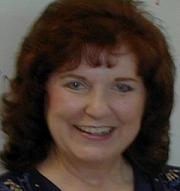 Evalyn Cole, Administrator of Spine Surgery Center of Eugene (Ore.).
Evalyn Cole, Administrator of Spine Surgery Center of Eugene (Ore.).
CONTRACTS! Fair reimbursement. Our surgery center faces special challenges because we are a spine specialty ASC and spine surgeries are not on the Medicare-approved surgery list. So, negotiating contracts is very challenging. Most ASC contracts are based on the Medicare fee schedule. Because our surgeries are not on that schedule, we have to negotiate a fee schedule on a case-by-case basis. I collected explanations of benefits from our patients who have had their surgeries at the local hospital, in order to determine what insurers pay the hospital for the surgeries done in our ASC. Insurers want us to accept 25 to 40 percent of what they pay a hospital. They are unwilling to contract for reasonable rates even when that could save them enormous amounts of money.
One insurance provider representative recently called me to say that a patient covered by her company's insurance policy had "called her and complained that we asked for her hospital EOB." The rep said that we did not have the right to that information because the contract was between her company and the hospital. I replied that I wanted to give patients accurate information so they could make an informed choice between our center (on an out-of-network basis) and the hospital. Even out-of-network, the patient's co-pay would have been significantly less than she paid the hospital. The rep said that she would rather be the one to educate.
Further complicating the negotiation is that many of these insurers have the same parent company that owns the hospital. So, even though it's not mentioned, it's fairly obvious that they are willing to pay the hospital considerably more than they pay our ASC for the same surgeries, because that keeps the money in the family.
We address this issue by refusing to sign contracts that do not pay costs. Sometimes surgeons are uncomfortable staying out-of-network because they fear reprisal by the insurer toward their provider contract. They are also concerned that somehow admitting to a patient that the ASC is out-of-network could bring the competence of the ASC into question. Out-of-network, done well, requires extra work — education of staff members on how to explain it to a patient and how to reassure patients that they will not be required to pay more than if their surgery was done at an in-network hospital. In many cases staying out-of-network and matching the patients' in-network benefits still saves money for the patient and is better than the contract proposal.
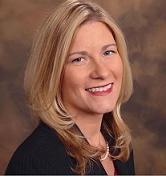 Jennifer Butterfield, RN, MBA, CNOR, Administrator, Lakes Surgery Center (West Bloomfield, Mich.).
Jennifer Butterfield, RN, MBA, CNOR, Administrator, Lakes Surgery Center (West Bloomfield, Mich.).
How to do more with less: meaning we are receiving reimbursement that is declining (Medicare's 2 percent sequestration), staying the same or changing per CPT code. Some are better and others worse, but in general things end up cost-neutral since we are multispecialty. We have increased supply and implant costs, taxes, utilities, rents, salaries and benefits and other operating costs. We also have more regulation: Quality Net reporting, increased standards for accreditation (Joint Commission's addition of Influenza vaccination program as one example), ICD-10 to prepare for, potential to move to EHR, etc.
Our industry is maturing, but it's maturing to the point that we basically have everything a hospital would have for a surgery department our size without the revenue, and therefore the staff, to support those demands. In a hospital, there is an infection control department, in an ASC there is an infection control RN. But in an ASC the infection control RN is required to do the same things and perform on the same level as an infection control department. But wait there is more; that infection control RN is also the OR manager and may assist the administrator or other employee with risk management, safety, recruiting, HR issues, etc.
Finding the right people with which to staff an ASC is a challenge. ASC staff members wear many hats. If our insurance verification person takes a vacation, then the biller/coder may have to do insurance verification. If the receptionist is out, then the scheduler may have to operate the front desk. It's actually very difficult to find a person that can do it all good enough so that the patients get great service and not fall drastically behind in their real job. That's stressful for people and many people struggle with how to handle stress, which breeds its own issues, such as morale, satisfaction and conflict.
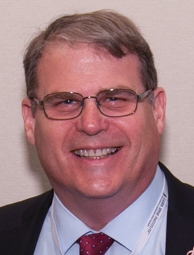 Joseph Ollayos, Administrator, Tri-Cities Surgery Center (Geneva, Ill.).
Joseph Ollayos, Administrator, Tri-Cities Surgery Center (Geneva, Ill.).
The biggest challenge our surgery center is currently facing is the recruitment of new physicians. Following a national trend, a local health system is purchasing physician practices, and we believe they will eventually look to have those doctors concentrate their cases at the hospital's same day surgery department. At the same time, many of the independent specialists in our area already own shares in one of several other local surgery centers, and have strong allegiance to their existing investments there.
Our strategy has been to work with our existing practices as they bring on new associates, offer them an outstanding experience, block scheduling times and shares after an initial assessment period. We have found that the development of a Physician Welcome Package has facilitated setting a good impression and establishing a solid relationship. The components include:
1. Tour of the facilities
2. Introduction of staff
3. Review of preference cards
4. Dictation system instructions and password
5. Key card to the physicians' entrance
6. Customized surgery scheduling form
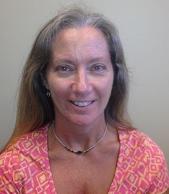 Janice Stewart, RN BSN, Nurse Administrator, SurgCenter of Bel Air (Md.).
Janice Stewart, RN BSN, Nurse Administrator, SurgCenter of Bel Air (Md.).
I would have to say one of the biggest issues right now is the reimbursement problem with insurance companies. The price of doing business has increased, but the reimbursement has not increased to match it. Medicare payments are threatening to decrease and many insurance companies do not want to change their reimbursements. Vendors are also struggling to keep cost down but maintain their businesses. Many of the fuel charges and delivery fees have increased with the rising gas prices and therefore the cost is passed onto the centers. We continue to negotiate with vendors to keep costs down and be able to care for patients in an affordable way.
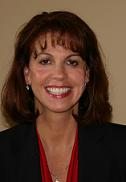 Stephanie Martin, BSN, RN, CNOR, CASC, Administrator, St. Augustine (Fla.) Surgery Center.
Stephanie Martin, BSN, RN, CNOR, CASC, Administrator, St. Augustine (Fla.) Surgery Center.
The continued decrease in reimbursement and increase in supplies makes it very challenging to remain profitable.
Ginny Pecora, RN, Administrator of Oregon Eye Surgery Center (Eugene).
The biggest challenge is staying up-to-date with constant, ever-changing issues. For example, problems with compounding pharmacies, Medicare regulations such as Quality Net reporting, reimbursement changes and sequestration reduction. Compliance takes a huge amount of time.
Lynn Winter, RN, BSN, Administrator, Surgical Center of St. Louis (Bridgeton, Mo).
Low volume. A group of our surgeons became hospital employed and their volume significantly dropped. We continue to work on recruitment of new physicians. We recently added a new specialty. A women's surgery center closed and we began doing GYN procedures. Higher deductibles. The bad economy. We have various financing options available for patients. Our billing office calls the patients to inform them of their expected payment, if the patients state they can not pay they are referred to our center where we will work with them so they can have the procedure their physician has recommended. The majority of the time, something can be worked out. There are still those cases that we must turn away due to too big of a loss for our center financially.
Nate Garner, MHSM, MBA, Administrator, Sunrise Ambulatory Surgical Center (Lakeside, Ariz.).
Decreasing reimbursement rates have caused our surgical center to take a greater focus on case costing. We meticulously track supplies and staff hours and analyze case costs with our surgeons. Our understanding of how much a case will cost the center allows us to determine which cases will be profitable and those that should be done elsewhere. Additionally, we share with our surgeons cost comparisons between vendors of common implants that they use in their surgical cases. They are then able to make cost-conscious decisions when selecting which implants to use in their cases. Focusing on case costing has allowed us to improve our costs per case and increase our profit margins.
More Articles on ASC Issues:
Insurance Premium Expectations: 10 Trends for Surgeons to Know About 2014
What ASC Owners Can Do NOW to Save $10,000-$25,000 or More on 2013 Taxes: 2013 4th Quarter Tax Saving Tips
How ASCs Can Thrive Through Teamwork: Q&A With Administrator Joseph DeMarco

